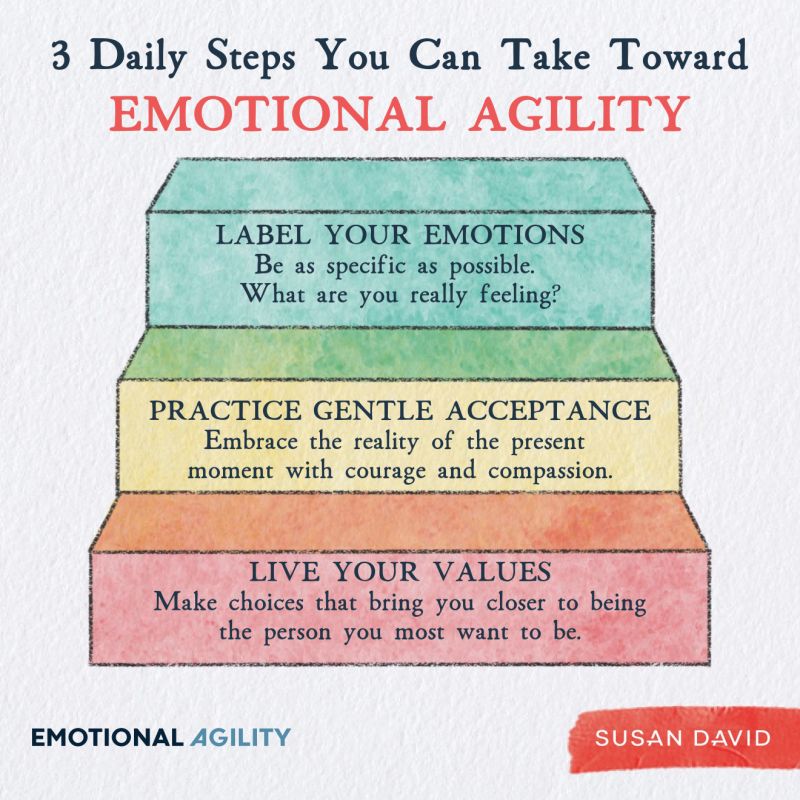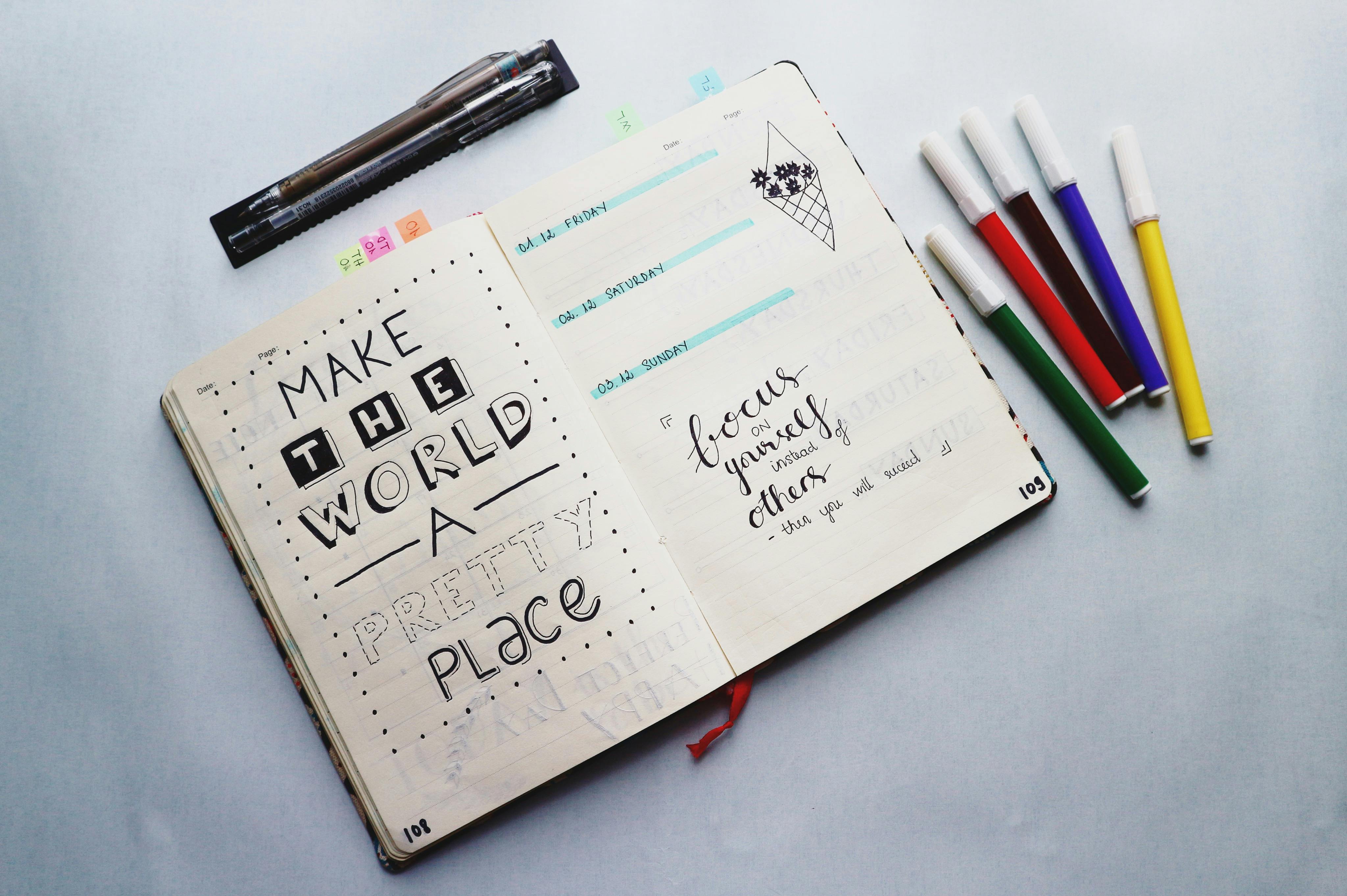There are times when triggering situations lead one to feel uncomfortable and difficult emotions. This may often lead to overthinking, to worries, to feeling anxious and to dwell on the past that may also lead to depression. In this case, what is the best way to deal with our negative emotions and thoughts?
According to David (2016), one way to deal with negative and stressful events that hamper our mental and emotions is through emotional agility. One thrives to difficult situations in life and to unexpected changes through this skill. Emotional agility is processing emotions in an objective way. It is acknowledging and not resisting negative emotions and thoughts that usually come and go because emotions are like changing weather. One’s ability to enhance emotional agility will keep one grounded, and will prevent one to become impulsive and reactive when triggered.
Now, it is interesting to know how to put this in action and how to be mindful of practicing and developing emotional agility. David (2016) proposed that there are four main tips in developing this skill. First, one must be able to identify and label their emotions in a non-judgment way. One has to acknowledge whatever emotion they are experiencing. Second, one has to accept their emotions. For example, one does not need to deny their anger or fear. One must accept that sometimes humans do feel these emotions. This may happen when triggered or when faced with an unexpected loss or uncertainty or crisis in life. Third, one needs to see what these emotions are teaching them? Reflecting on this will lead one to see how emotions will be viewed objectively. Fourth, when one is done contemplating their emotions, one can then reflect and decide what actions to take based on their values.

For example, experiencing rejection or abandonment after figuring out that one was being cheated by their partner, one may feel betrayed and a lot of unworthiness thoughts may come into one’s mind. According to David (2016), there are two main types of identifying how one handles their negative emotions and thoughts. One may choose to bottle their emotions like one tends to say they are fine and or become a brooder, one who dwells too much about the past. One needs to have a balance of both, like one needs to grieve well after a heartbreak or being cheated on. One needs not to rush the process of healing, like if anger and fear is still there, one needs to feel them. However, one needs to know when to shift, to change fear and anger into courage to forgive…to forgive oneself, and to forgive others. One needs to go through labeling emotions, accepting that if anger or fear is still there, one needs to process these emotions objectively. This means not letting the emotions affect one’s decisions and choices in life especially when it comes to relationships. This could then lead one to reflect and contemplate what actions to take according to what one truly values in relationships. One may choose to forgive and let go or forgive and still continue to hold on. Either way, with emotional agility one may choose or decide based on what is right or what could make them happy or a balance of both. Hence, emotional agility will lead one to have conscious decisions and choices in life.
I invite you to explore the transformative benefits of therapy in developing emotional agility. You can learn practical strategies to identify, accept and leverage your emotions, ultimately leading to conscious decision making and a more fulfilling life. Let’s empower and embark to a journey of self-discovery and resilience- let’s connect.
Reference:
David, Susan (2016). Emotional Agility: Get unstuck, embrace change, and thrive in work and life. Penguin Books.
About the Author

Professor Junnevy Millora specializes in helping clients experiencing trauma, depression, and anxiety, focusing on how these experiences influence daily life.
“My aim is to empower you to regain control, manage overwhelming feelings, and discover inner peace.
I firmly believe that every individual has inherent strengths and the capacity for growth and change. My role is to guide you in reconnecting with yourself, fostering understanding with empathy and compassion.”








